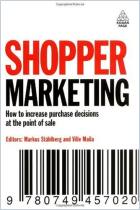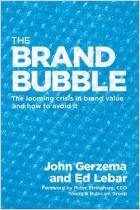Únase a getAbstract para acceder al resumen.

Únase a getAbstract para acceder al resumen.
Lars Thomassen, Keith Lincoln and Anthony Aconis
Retailization
Brand Survival in the Age of Retailer Power
Kogan Page, 2006
¿De qué se trata?
To sell their wares, manufacturers must become “servants” – or shrewd partners – of giant retailers.
Recommendation
Every great political movement, religion and scientific transformation begins with a revolution. “Retailization” may well be that revolution in worldwide marketing. Of course, from a historical perspective, it is simply a new wrinkle in the 100-year-old phenomenon of the consumer society – but a big one. Lars Thomassen, Keith Lincoln and Anthony Aconis advocate, “putting retail at the center of your business.” Brand owners have been trying to do this for decades, but they have ranged from successful innovators to laggards who died or got swallowed by conglomerates or competitors. The authors have re-examined today’s conditions in the light of the International Retailization Study 2005, “the largest global study every conducted” about selling branded merchandise, a two-year effort by media pollsters A.C. Nielsen and the BBDO Europe advertising agency. The authors alert any remaining brand-marketing optimists to the new level of competition and offer some concrete strategies. getAbstract recommends this clarion call about the retail revolt.
Summary
About the Authors
Lars Thomassen and Keith Lincoln are advertising executives with 30 years of experience in marketing and global branding. Marketing consultant Anthony Aconis has developed global brands for 11 years.





















Comment on this summary